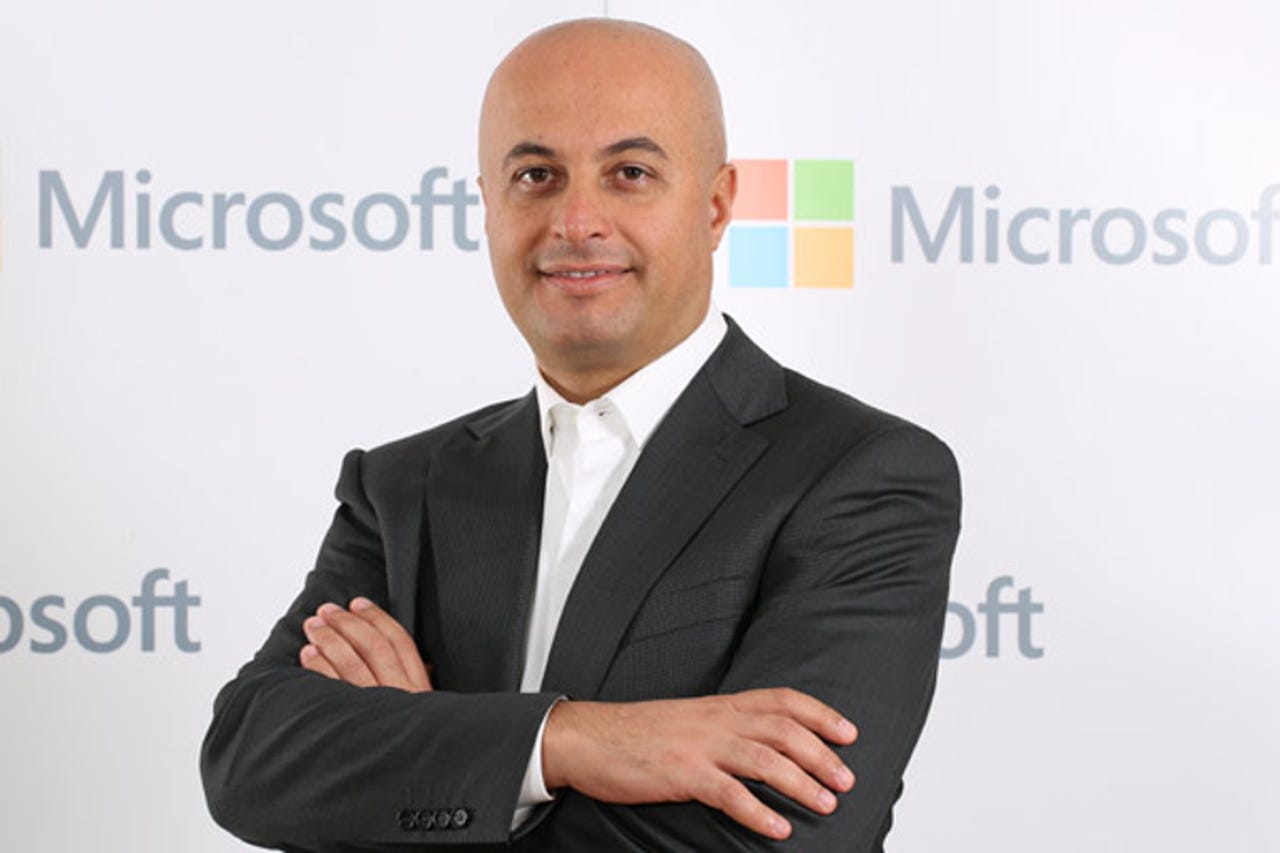Microsoft's Middle East chief: 'Cloud, big data, IoT are only part of the story'


Microsoft Middle East and Africa president Samer Abu Ltaif: "Local applications that meet a local need."
Samer Abu Ltaif, president of Microsoft's Middle East and Africa operation has been with the company since 2004.
In that time, the region has changed rapidly, driven by a youthful population and a major uptake in IT and telecoms. Unlocking the potential afforded by these technologies and a young and diverse population will be essential for its future.
For Microsoft, the goal means supporting "projects and initiatives that focus on developing youth in the region, supporting governments, decreasing unemployment, encouraging local innovation, driving a digital transformation agenda and ultimately contributing to economic and social development by fostering a knowledge-based economy".
That's a broad list of aspirations, but Abu Ltaif has clear ideas on what's needed to make that happen, and how Microsoft and its partners can contribute.
Relevance and regulations
"Even though the technology exists, digital transformation requires a fundamental shift in thinking," Abu Ltaif argues. "And the main driving forces of change will be citizen demands, and budget pressures."
With that in mind, he makes a strong case for the role of the private sector in driving change. "Regulations that uphold a competitive and open environment will encourage innovation and foster a high standard of technical infrastructure," he says.
"One of the important lessons of Africa's mobile phone miracle is the way in which this advanced communication tool became ubiquitous so quickly. It began with the privatization of government-owned and operated telephone companies, and the end of monopolistic practices in favor of an open and competitive market.
"Once the private sector was allowed to build the connectivity infrastructure, sell phones, and market products, the industry exploded and the uptake by consumers outpaced companies' ability to keep up with demand."
At the same time, the mobile sector also responded to the needs of local consumers. And that's vital, Abu Ltaif says.
"There are so many solutions from around the world used by everyone. However, the importance of a solution is relevance, which is often driven by local demand. The key is to work closely with local developers to create local applications that meet a local need."
Power of partnerships
"The next wave of digital transformation will require an equal level of private-sector leadership, as well as a strong partnership with government to create an enabling environment to allow the forces of a competitive market to facilitate innovation," Abu Ltaif believes.
This situation will require "strong leadership in change management", he says. "Leaders who understand digital trends and technology are more likely to provide organizations with support to help their workforce build digital skills."
Abu Ltaif highlights the Microsoft 4Afrika Open for Business program, as one initiative designed to support this technological evolution. The program is designed to help governments streamline regulations by using cloud computing, and enable investors to comply with complex, time- and cost-consuming business regulations.
The company also launched its largest Center of Excellence for Oil and Gas in Dubai last year, with the aim of supporting the sector through use of big data and advanced analytics tools and various cloud services.
Partner solutions are provided by a range of companies besides Microsoft, including: Accenture, Aveva, Baker Hughes, Honeywell, OSIsoft, Schneider Electric and Schlumberger.
Smart cities
As well as the continued transformation of the region's established oil and gas industries, many governments are also focusing on the creation of smart cities and mobile government services. Both these areas are important in a region with high mobile take-up and an expanding urban population.
Digital transformation is already taking place in cities across the Middle East and Africa, Abu Ltaif observes, noting the role played by the "cloud, big data, the Internet of Things and social media" in driving the adoption and rollout of services.
But these elements are only one part of the story, Abu Ltaif argues. "Governments also now have the opportunity to gain new insights into how to improve the way they operate," he says. "Cities have to meet the ever-evolving needs and demands of their citizens while running their communities efficiently."
Doing this isn't always easy, especially in the Middle East and Africa, he suggests, due to challenges such as "rapid urbanization, budget cuts, crumbling infrastructures, cybersecurity concerns, and growing demands on the energy grid".
Small business and startups
Addressing these challenges will be important if the smart city ambitions of many governments in the region are to be realized. Alongside programs like Microsoft CityNext, Abu Ltaif also points to the role of smaller firms and entrepreneurs in delivering national digital ambitions.
"SMEs are naturally inclined to lead digital transformation because they are nimble, and can be digital from the start, without being encumbered by legacy IT infrastructure," Abu Ltaif says. Therefore, creating an environment that allows this sector to prosper is essential.
Similarly, Abu Ltaif thinks "Education and diversity are pivotal for the success of digital transformation".
He identifies Aspire Women, an Egyptian initiative that helps underserved women Morocco Cloud Startup Academy, as just two initiatives they are supporting in this space.
"Since launching [the Cloud Academy], 22 new cloud-based startups have been created and 19 women have been placed in permanent jobs," he says.
Meanwhile, its global Microsoft Partners in Learning program, which works with 12 million educators in 134 countries worldwide, has already helped over 13 million students in sub-Saharan Africa, according to Abu Ltaif.
Looking ahead
He argues that Microsoft's commitment to the region is underpinned by projects that focus on supporting smaller firms, transforming education, nurturing youth and fostering a vibrant community of start-ups and developers.
"I'm also looking forward to seeing a lot more freedom and social justice and equality," he adds. "One of the biggest impacts of technology is the democratization of data and information. This enables people to make more informed decisions, and participate more regularly in public affairs."
He also wants Microsoft to help drive economic growth by "unleashing creative minds and building a more cohesive society across the region, making it smart and sustainable so it becomes the most preferred part of the world to live, work and visit".